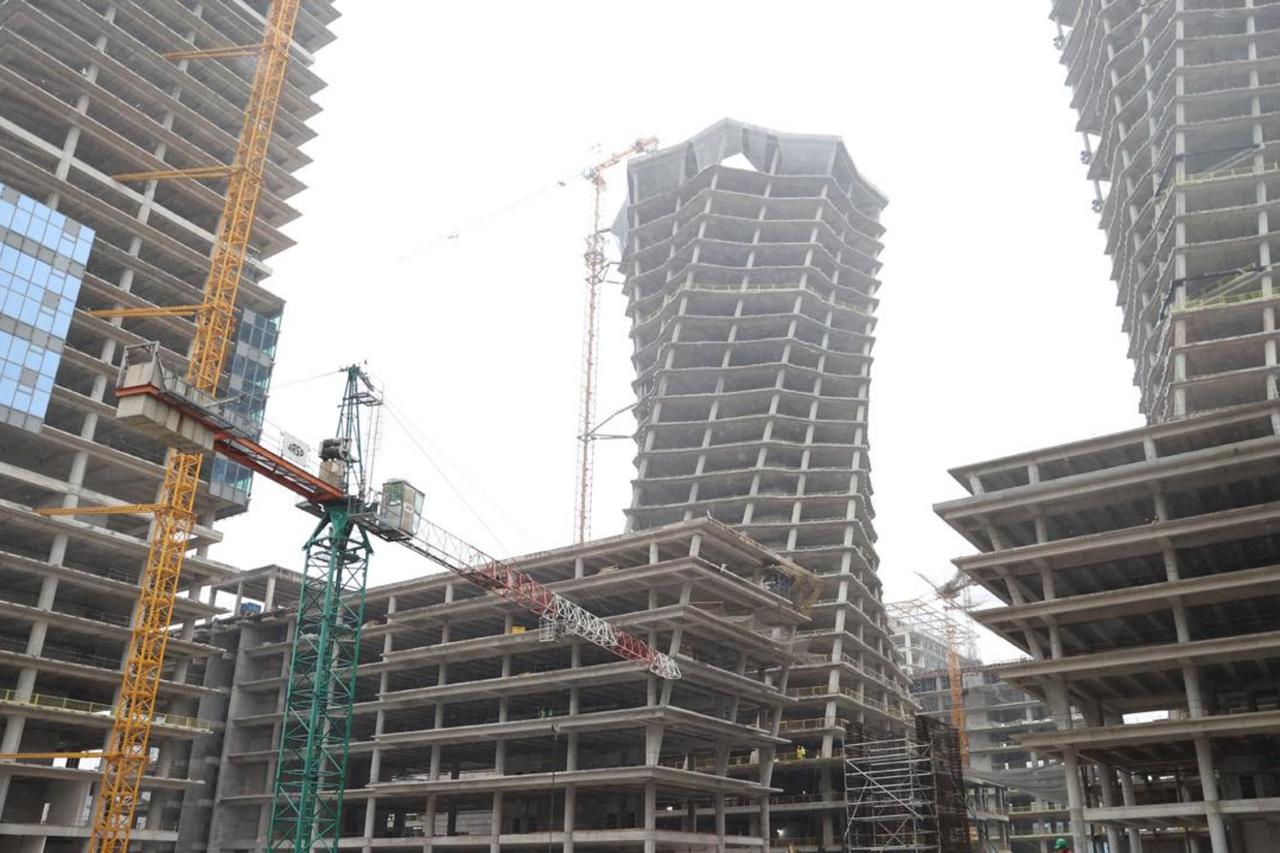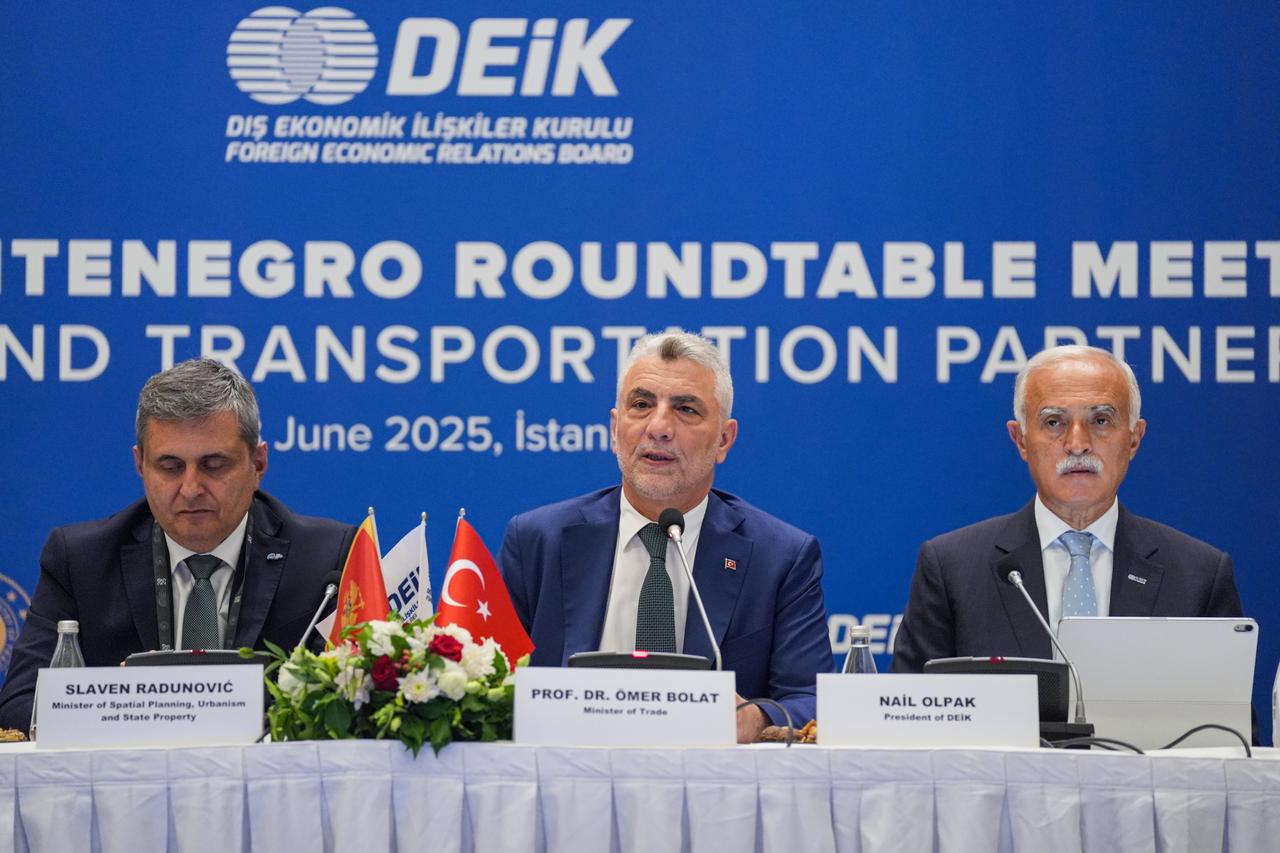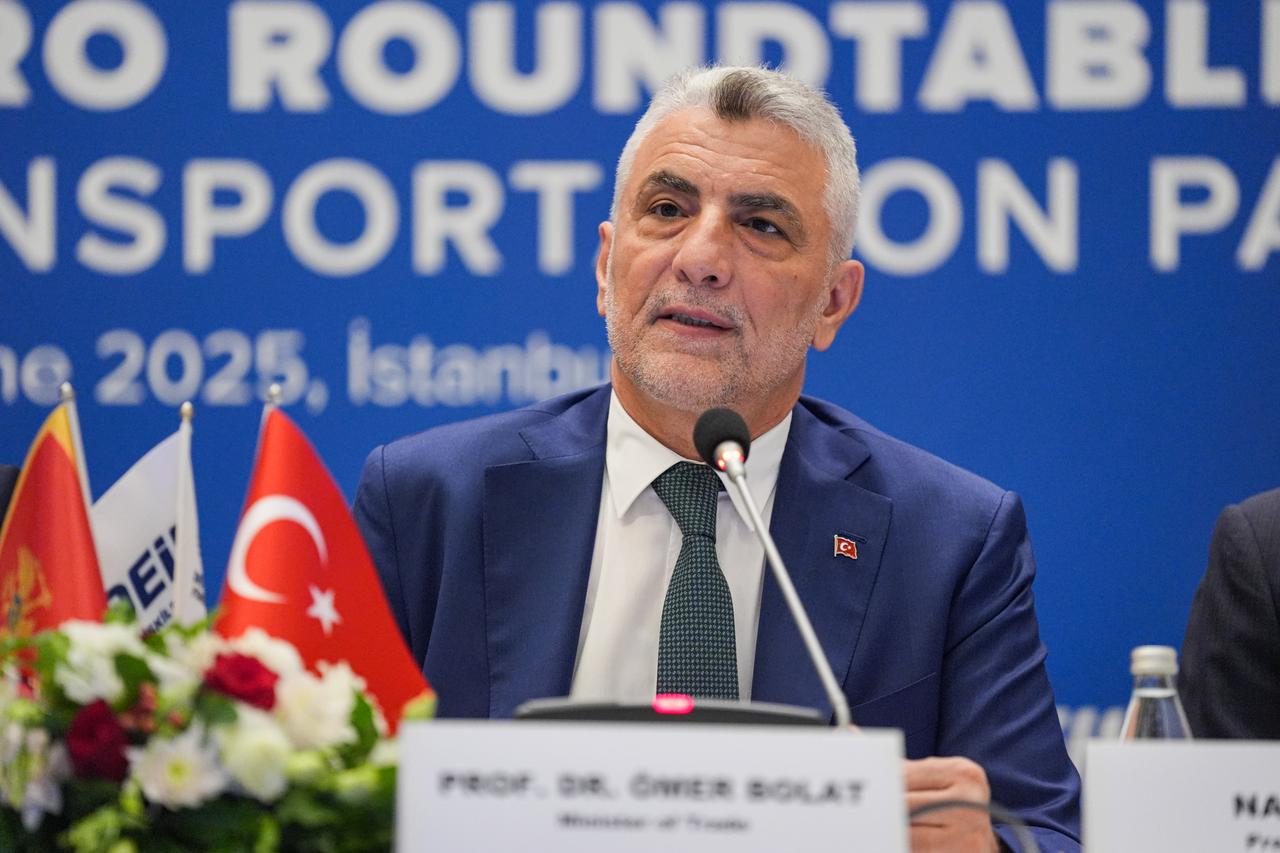
Turkish contractors have carried out 12,600 projects worth a combined $542 billion in 137 countries to date, making Türkiye the 2nd-largest international player in the global contracting sector after China, according to Trade Minister Omer Bolat.
“Turkish contractors are among the top 250 in the world, known for their skilled workforce, technical strength, and ability to deliver projects on time,” Bolat stated on Saturday at the Global Transport Corridors Forum in Istanbul, during the Türkiye-Montenegro Roundtable Meeting.

In Montenegro alone, Turkish firms have undertaken 66 projects with a total value of $418 million, which Bolat said reflects Türkiye’s expanding presence across the Balkans and beyond.
Bolat highlighted that Türkiye is now the largest foreign investor in Montenegro, with Turkish companies operating across key sectors such as construction, tourism, banking, and healthcare.
“Montenegro is one of the most attractive destinations for Turkish investors,” he said. “Thousands of Turkish firms are active there, building a strong economic bridge between our countries.”

A majority of the construction projects involve tourist facilities and housing, making up roughly two-thirds of the total project value. Other projects include highways, shopping malls, wastewater systems, and water treatment plants. Turkish consultancy firms have also completed 14 projects worth nearly $10 million.
Looking ahead, Turkish firms are preparing to take part in new infrastructure, energy, housing, and transport projects in Montenegro. Bolat noted that Turkish consultants are also eager to contribute to Montenegro’s development.
“Turkish companies are interested in many important projects that will soon begin in Montenegro,” he said. “In the field of technical consultancy, Turkish firms are highly committed to offering the best service for the benefit of Montenegro’s economy.”
Deputy Minister of Transport and Infrastructure Omer Fatih Sayan added that Türkiye and Montenegro aim to deepen cooperation through public-private collaboration. “We want to enhance our partnership by seizing every possible opportunity, providing technical support, sharing experiences, and organizing meetings with both public and private sector institutions,” he stated.
Sayan emphasized the necessity of integrated transportation planning. “Planning road, rail, air, and various transport systems in a complementary way is no longer a choice—it is a requirement for economic and environmental sustainability,” he said.
He also pointed to Türkiye’s regional ambitions. “We are developing the transport network not only for Türkiye but also with the aim of establishing a fully integrated logistics system with the Balkans,” Sayan noted. “At every step of this corridor connecting Türkiye and Europe, we are moving forward with determination to strengthen our ties.”
Turkish investors, he added, are showing increasing interest in opportunities in Montenegro. “We want to support this process with long-term partnerships shaped by a common vision,” he said.